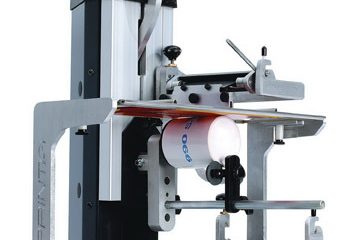Weathering Economic Turbulence
Published
16 years agoon
Whether or not the Federal Reserve is willing to call the extend-ed period of economic bad news a recession makes little difference to the average small-business owner. I have talked to enough small-business people to realize that whatever the academics in Washington ultimately decide to call the current economic climate, their definition will not match some of the colorful expressions that I’ve been hearing.
The story is the same everywhere I go. We all posted one of the best years ever in 2007, despite the dire predictions, and everything looked great through February of this year. Then the bottom fell out. As soon as the bad news started rolling in, it seemed the spigot turned itself off and we were caught scrambling, fighting desperately for whatever work was available. I have seen for the first time in quite a few years the look of desperation on the faces of many of my professional compadres. A few of them already have all but thrown in the towel. It’s time to step back from the pressures of trying to stay afloat, take a deep breath, and look a little more closely at the bigger picture. This just might be the best thing that ever happened to your shop.
Those who have been around for a while will tell you that a downturn in the economy always favors a screen-printing business in the long run. Screen-printed graphics are still the most cost-effective media out there. Our customers get a lot of bang for their merchandising buck from trusted, local screen shops, and many businesses have been forced to cut their high-end marketing budgets to a point where our services are becoming very attractive again.
Slowly, but surely—and with a lot of hard work—you will be able to land some great new accounts outside of your usual customer base. This will potentially position your company to move to the next level as soon as the economy picks up. When it does, you will find that many of your less resilient competitors are gone, and you can emerge stronger, more efficient, and more competitive into the good times that will return. The hardest part is making sure that you are still in business when that happens. So let’s circle the wagons and make a few changes to get ourselves through this tough patch.
Personnel
AdvertisementPerhaps the most important thing to maintain right now is the morale of your employees. Call a meeting and explain your plans for surviving the economic downturn. Solicit ideas on how each employee can personally contribute to your plan. Chances are, you will have to make some tough decisions and let go of some people to cut back on payroll and maintain cash flow. If you do, do it with as much dignity as possible and explain to the remaining employees why it is necessary to make cutbacks to preserve their jobs. This is the time to pull together, and it’s crucial that you involve everyone in the process. Be a leader. Stay positive all the time. Your level of enthusiasm will be infectious—whether it’s positive or negative—and will dictate the mood on the shop floor. Always make sure it’s positive.
Cash flow
I’ve said this before, and I’ll say it again: Cash flow is key to the success of any business. Lack of it will put you out of business a lot faster in our current economic climate. Stay on top of your payables and receivables. Don’t let customers fall behind on their payments. Make the most of the net 30 terms that you have negotiated with your suppliers. Hold onto your money as long as you can. Save every penny that you can, however insignificant the amount may seem, and it will drop to your bottom line.
Get creative in finding ways to increase cash flow. A customer of mine recently told me that he asked his credit-card customers to pay him using courtesy checks that credit-card companies send when customers sign up for the cards. Apparently, the courtesy checks are as valid as regular checks and incur none of the processing fees that can take a bite out of your precious margins. These courtesy checks are often free for the asking. He said that his clients are usually so impressed by the idea that they immediately suggest the same thing to their own customers.
Advertisement
Efficiency
Cut out overtime. It should be used only in the most dire circumstances. Overtime is an expense you can no longer afford to pay. You will be amazed at how all the work can be done during the regular work week with just a little more planning and efficiency. Think every job through in advance, and make sure your employees understand the golden rule of production—if the press is not running, the company is not making money. Make setups and breakdowns as efficient as possible, ensuring all the elements to complete the job are available. Don’t be tempted to cut corners in the mistaken belief that you will save time. Doing so only will contribute to poor product quality. Remember, quality is never negotiable.
Margin
Many small businesses decide that they need to cut prices to attract the diminishing number of customers available. Customers want to save money and seem to spend much time these days calling around for quotes. Don’t panic and be-come the cheapest place in town. Don’t advertise on your Website that you will beat any reasonable offer. Never print a job that you know will cause you to lose money, even when the customer promises he will make you rich with follow-up business.
Determine what your margin must be to allow your business to continue functioning in the black, and never price a job below that level. Stress to your potential customers that you are not the cheapest place in town, but you offer the best quality and the best customer service at a competitive price. Be prepared to send the unprofitable jobs to a cheaper competitor and let them figure out how to stay in business with those kinds of margins. Soon their order books will be full, and their bottom lines will ensure that they will not be around for much longer. Be prepared to look your customers in the eye and tell them that you cannot honestly produce a quality product at the price they are suggesting, so you will have to turn them down this time. Many of them will come to you in a few weeks for their next order and not haggle on the price.
Advertisement
Suppliers
This is where my friends who represent a multitude of products that you buy every month make a mental note to dump me in the nearest waste-treatment barrel the next time they see me. Sorry, guys. If you are hurting because of the economy, then surely your suppliers are hurting as well. It won’t do them any good if all of their customers go out of business, so use this knowledge to your advantage.
Call in your reps, and tell them that you need their help to weather the storm. Ask what they can do to make it possible for you to stay in business and enjoy the upcoming good times with them. Ask them to negotiate some interim pricing to get you through the recession. I think you will be surprised by the reaction you get. Once they realize that you are serious about surviving the downturn and your commitment to the long-term growth of your business, they will suddenly see you as a very attractive customer.
We all know it’s not easy being in business during the best of times, and times like the ones we are experiencing lately make us wonder why we got into business in the first place. A real entrepreneur will see this as an opportunity to test himself and his skills. You have built the boat. Now it’s time to see whether it’s strong enough and you are skilled enough to navigate through the rough water. I’ve been in this industry long enough to know that the most successful print-shop owners are already relishing these challenges and dreaming about being in the right place down the road to take full advantage of the coming good times.
Gordon Roberts has a history in screen-printing production management that spans more than 25 years. He has held supervisory positions in shops that represent a broad spectrum of application areas and markets, including printed electronics, apparel, signage, and retail graphics. Roberts has presented training courses on the basics of screen-printing production and on shop management for the Screentech Insititute and is presently a consultant for the screen industry. He can be reached at screenconsult@aol.com.
SPONSORED VIDEO
Let’s Talk About It
Creating a More Diverse and Inclusive Screen Printing Industry
LET’S TALK About It: Part 3 discusses how four screen printers have employed people with disabilities, why you should consider doing the same, the resources that are available, and more. Watch the live webinar, held August 16, moderated by Adrienne Palmer, editor-in-chief, Screen Printing magazine, with panelists Ali Banholzer, Amber Massey, Ryan Moor, and Jed Seifert. The multi-part series is hosted exclusively by ROQ.US and U.N.I.T.E Together. Let’s Talk About It: Part 1 focused on Black, female screen printers and can be watched here; Part 2 focused on the LGBTQ+ community and can be watched here.
You may like
Advertisement

Atlantis Headwear Goes Solar for Sustainable Future

Comfort Colors Announces New Proprietary Dyeing Process Called “Pigment Pure”

10 Production Scheduling Secrets That Will Have Your Team Ready to Rock
Advertisement
Subscribe

Bulletins
Get the most important news and business ideas from Screen Printing magazine's news bulletin.
Advertisement
Most Popular
-

 Case Studies2 months ago
Case Studies2 months agoHigh-Density Inks Help Specialty Printing Take Center Stage
-

 Art, Ad, or Alchemy2 months ago
Art, Ad, or Alchemy2 months agoF&I Printing Is Everywhere!
-

 Andy MacDougall2 months ago
Andy MacDougall2 months agoFunctional and Industrial Printing is EVERYWHERE!
-

 Columns4 weeks ago
Columns4 weeks ago8 Marketing Mistakes Not to Make When Promoting Your Screen Printing Services Online
-

 Editor's Note3 weeks ago
Editor's Note3 weeks agoLivin’ the High Life
-

 Marshall Atkinson3 weeks ago
Marshall Atkinson3 weeks agoHow to Create a Winning Culture in Your Screen-Printing Business
-

 Case Studies4 weeks ago
Case Studies4 weeks agoScreen Printing for Texture and Depth
-

 News & Trends2 months ago
News & Trends2 months agoWhat Are ZALPHAS and How Can You Serve Them in Your Print Business?











